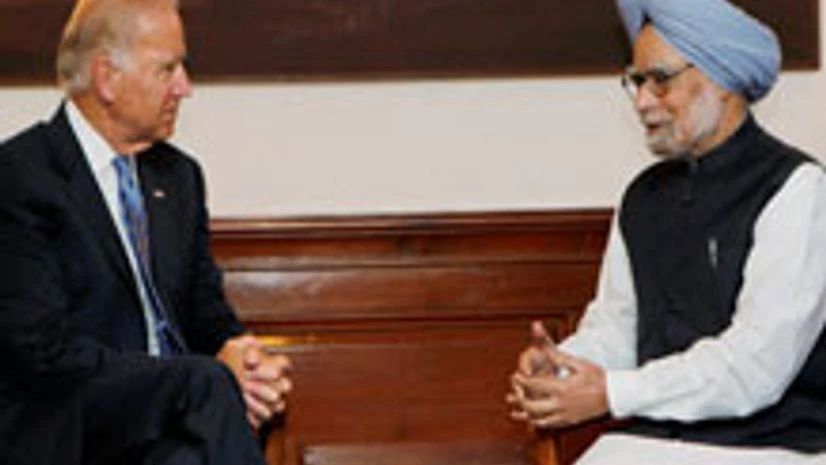When US Vice-President Joe Biden arrives in the country’s financial capital of Mumbai on Wednesday, he will be flooded with requests by Indian industry to renew the Generalised System of Preferences (GSP), set to expire this month. India Inc has decided to strongly pitch for it during their meeting with him.
Presently, exports to the US from small- and medium-scale Indian industries under the GSP are allowed duty-free entry. If the programme gets discontinued, Indian exports will be subjected to US import duties.
Biden, will be meeting business, trade and investment leaders at Mumbai’s Taj Palace Hotel on Tuesday afternoon.
More From This Section
Thus, “US jobs and corporate interests are equally linked to the renewal GSP programme,” he said. The process of renewal is under review. In the Trade Policy Agenda released in March, the US administration had called for the GSP to be renewed beyond 2015. The main beneficiaries are labour-intensive micro, small and medium enterprises.
However, recently, there were several voices of dissent in the US legislature, the Congress, on renewing of GSP benefits to India. The US administration is linking the issue with Indian intellectual property rights laws, which it believes is affecting US companies operating in this country.
On June 18, as many as 14 US business groups launched the ‘Alliance for Fair Trade with India’. It has called on the US government and Congress to press India on issues of concern such as Indian IPR laws. Companies like IBM have advocated linking these issues to GSP benefits. Recently, after appointment as the new US Trade Representative, Michael Froman said the IPR regime in India was “deteriorating” and had become a primary cause of concern for American firms. He also said in his reply to the US Senate Committee on Finance that for developing countries like India, it was important to maintain a stable IPR regime “in order to be eligible for the GSP benefits”.
The US government recently suspended GSP benefits for Argentina. It is contemplating similar action for Bangladesh, for having failed to adhere to labour standards. In 2011, $18.5 billion of imports from the 129 GSP-beneficiary countries entered the US duty-free, saving these exporting countries $700 million in import duties.
India was the top developing country GSP-beneficiary in 2011, with $3.7 bn in imports entering the US duty-free.

)
